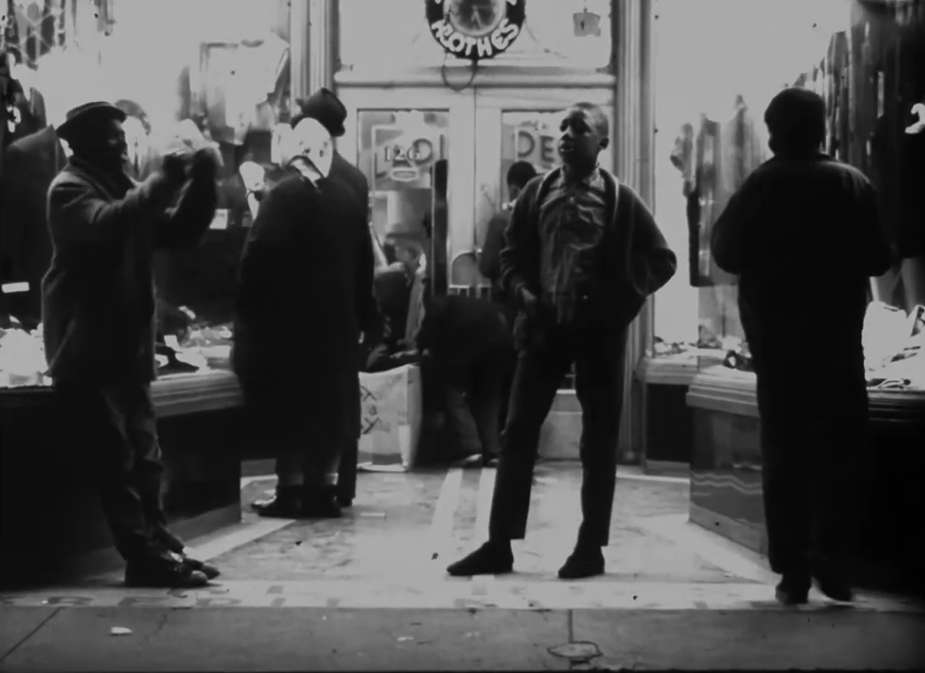"The American Negro" Film
1960s
Add to Favorites:
Add all page(s) of this document to activity:

This unfinished civil rights-era film details how segregation affected the daily lives of African Americans. It was created by the U.S. Information Agency (USIA). Like many of the USIA’s other films exploring racial issues in America at the time, this film was meant to be shown to international audiences.
It includes portions of interviews with James Farmer, Roy Wilkins, Whitney Young, and Ralph Metcalfe. Farmer, Wilkins, and Young were considered to be among the "Big Four" leaders in the U.S. civil rights movement, along with Martin Luther King, Jr. James Farmer was the initiator of the the 1961 Freedom Ride and co-founder of the Congress for Racial Equality. Roy Wilkins was the executive director for the NAACP between 1955 and 1977. Whitney Young was the executive director of the National Urban League between 1961 and 1971. Ralph Metcalfe was an Olympic Athlete and won silver medals in 1932 and 1936 and later went on to be a four-term US Congressman from Illinois.
The film also describes the strides and challenges faced by African Americans in the areas of voting, housing, and education. It is narrated by Charles Gordone.
This film uses the term "negro" to refer to Black people, which was commonly accepted in that era, but is outdated and inappropriate today.
It includes portions of interviews with James Farmer, Roy Wilkins, Whitney Young, and Ralph Metcalfe. Farmer, Wilkins, and Young were considered to be among the "Big Four" leaders in the U.S. civil rights movement, along with Martin Luther King, Jr. James Farmer was the initiator of the the 1961 Freedom Ride and co-founder of the Congress for Racial Equality. Roy Wilkins was the executive director for the NAACP between 1955 and 1977. Whitney Young was the executive director of the National Urban League between 1961 and 1971. Ralph Metcalfe was an Olympic Athlete and won silver medals in 1932 and 1936 and later went on to be a four-term US Congressman from Illinois.
The film also describes the strides and challenges faced by African Americans in the areas of voting, housing, and education. It is narrated by Charles Gordone.
This film uses the term "negro" to refer to Black people, which was commonly accepted in that era, but is outdated and inappropriate today.
This primary source comes from the Records of the U.S. Information Agency.
National Archives Identifier: 51011
Full Citation: Motion Picture 306.4786; The American Negro; 1960s; Moving Images Relating to U.S. Domestic and International Activities , 1982 - 1999; Records of the U.S. Information Agency, Record Group 306; National Archives at College Park, College Park, MD. [Online Version, https://docsteach.org/documents/document/american-negro, April 26, 2024]Rights: Copyright Not Evaluated Learn more on our privacy and legal page.



